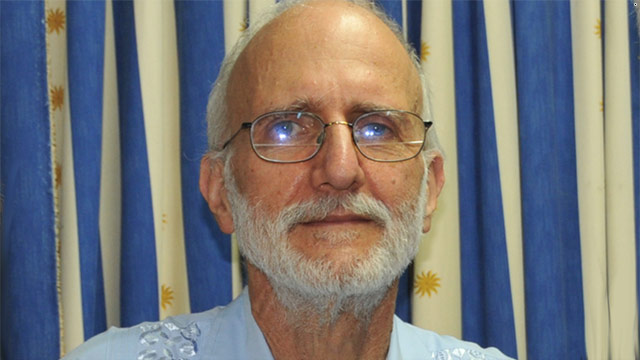
Alan Gross “plans to end his life,” says lawyer of American jailed in Cuba
HAVANA- The wife and lawyer of Alan Gross, a U.S. government subcontractor serving a 15-year prison sentence in Cuba, said Wednesday they fear for his life even more after his mother’s death from cancer last week.
In Havana to visit her husband, Judy Gross again urged Washington to do whatever is necessary to secure his release after more than four years behind bars.
“I am extremely worried that Alan is going to do something drastic now that his mother is gone,” she said in a statement. “My husband and I need President Obama to do everything in his power to end this nightmare and bring Alan home from Cuba now.”
Gross launched a hunger strike in April to protest his confinement and pressure Washington and Havana resolve his case. He ended it after nine days at the request of his mother, Evelyn Gross, who died June 18 in Texas.
He has lost more than 100 pounds, is losing vision in his right eye and “both of his hips are failing,” the statement read.
“I am extremely worried that Alan is becoming more despondent every day,” said Scott Gilbert, the Grosses’ U.S. lawyer. “Both governments need to know that Alan plans to end his life in an effort to end this agony.”
U.S. and Cuban officials did not have immediate comment.
Gross was arrested in 2009 while working to set up unauthorized Internet networks for the island’s Jewish community on a contract with the U.S. Agency for International Development, a government entity.
He says his activities were no threat to Cuba. But Havana considers such programs an affront to its sovereignty, and Gross was convicted under a statute governing crimes against the state.
Cuba has made clear it wants to work out a solution involving three intelligence agents serving long prison terms in the United States on spy-related charges.
Washington says the cases are not comparable.
Judy Gross suggested that a swap should be on the table, noting the recent exchange of five detainees at Guantanamo for a U.S. soldier held captive in Afghanistan.
“If we can trade five members of the Taliban to bring home one American soldier,” she said, “surely we can figure out a path forward to bring home one American citizen from a Cuban prison.”
Earlier this month, Fernando Gonzalez, a Cuban intelligence agent released from a U.S. federal prison in February, echoed that sentiment, saying President Obama could swap “three brothers”–Cuban agents serving long sentences in U.S. prisons– for Gross.
“If they were willing to make this kind of exchange with the Taliban in Afghanistan, it makes no sense other than the lack of political will” not to do the same with Havana to gain the release of “the person jailed in Cuba,” he said.

